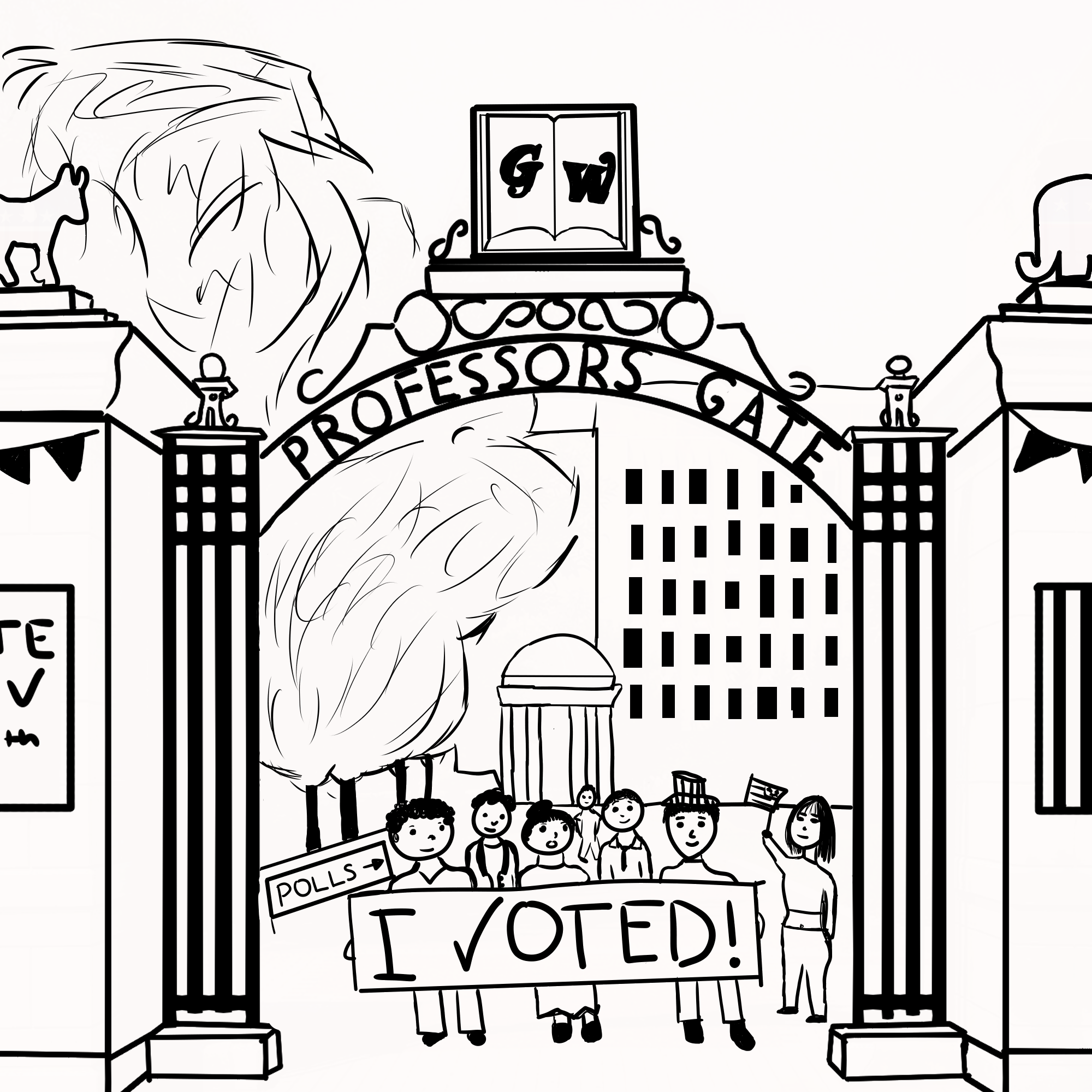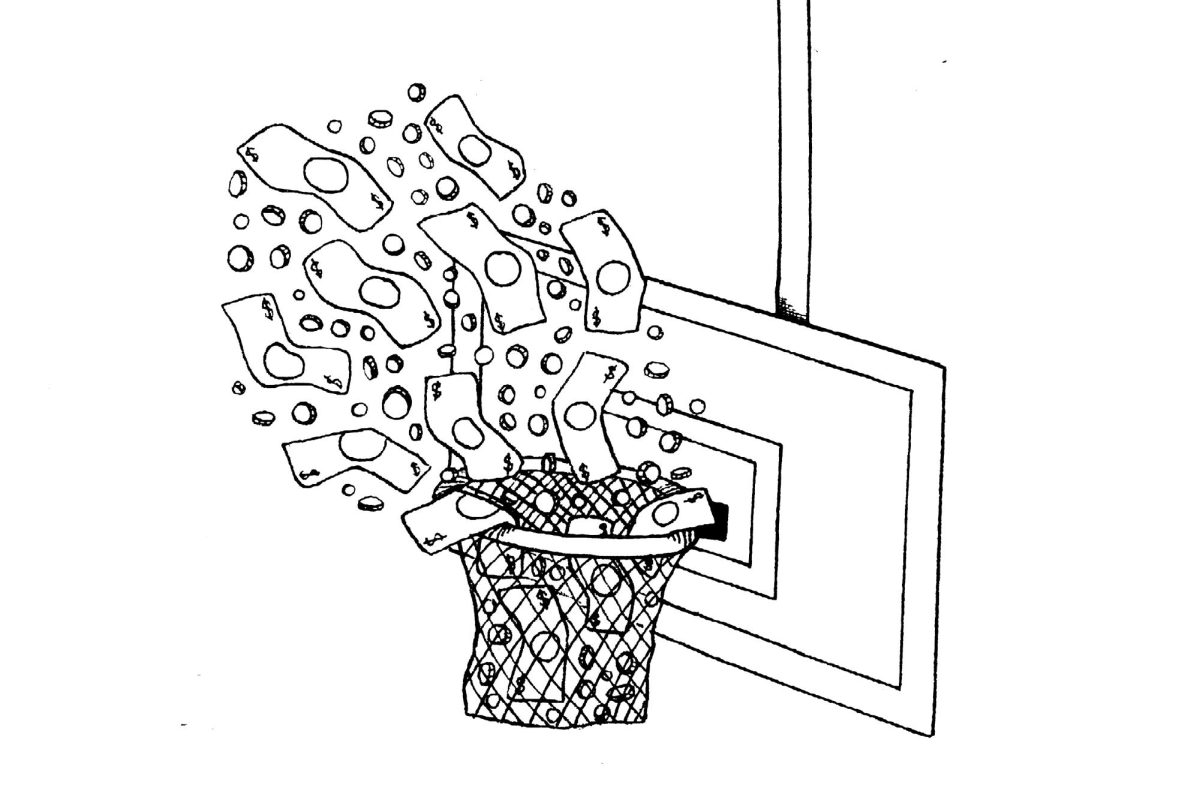Between its location and its history, the course of U.S. politics runs through GW. The University preaches that politically active students can look forward to joining an alumni network of senators, diplomats and world leaders. It’s no secret that many of us are interested in politics – information about how to vote and invitations to listen to members of Congress speak flood our inboxes. But as much as they may tout students’ potential as changemakers, Election Day is still neither a national nor University-wide holiday.
For many, especially staff and faculty, Election Day is just another day of work. As long as such an obstacle remains in place on campus, the University’s commitment to its community’s political ambitions seems more like empty rhetoric than actual policy. If civic participation truly matters at GW, then officials should make Election Day an official holiday.
The Student Association Senate called on faculty to allow excused absences and avoid scheduling due dates for assignments or administering exams on Election Day last month. But more formal time off for Election Day isn’t without precedent. Officials designated Election Day a University holiday in 2020 as a response to a student petition and similar decision at American University. Then-University President Thomas LeBlanc canceled synchronous classes, closed offices and allowed staff members still required to work on campus to schedule up to two hours of paid time off with their supervisors so they could vote. But the University Calendar indicates no sign that officials are considering doing the same for this year’s midterm elections.
2020 may stand out as “the most important election in our lifetime,” hence officials’ decision to declare a holiday. But the stakes needn’t be so high to have a day off to engage with U.S. democracy. With or without a pandemic or critical presidential election, there’s an inherent value in exercising your right to vote – whatever the year, the candidates or the issues, political participation of all stripes is the foundation of our democracy.

Camellia Genovese | Cartoonist
Citywide and hyperlocal elections in D.C. will determine the officials who decide everything from increases in the District’s minimum wage to the drinks your favorite restaurants and clubs can serve. D.C. voters could decide to reelect Mayor Muriel Bowser for a third term in office, endorsing her vision of a post-pandemic comeback for the city despite an uptick in crime and a lack of affordable housing in the city. Their support for progressive or more moderate candidates in races to represent Wards 1, 3, 5 and 6 on the D.C. Council, plus the citywide contest for two at-large seats, could realign the District’s legislature. In turn, these new Council members would be responsible for implementing or rejecting policy ranging from rent control to Initiative 82, a hotly contested ballot measure that would raise tipped workers’ wages from $5.35 to $16.10 by 2027. And hundreds of advisory neighborhood commissioners, who represent parts of the city on a block-by-block basis, will be up for election.
Both voters and candidates across the city include members of the GW community. In 2021, 1,615 students, or 6.9 percent of the University’s total student population, were from D.C., according to enrollment data. Nor is it a stretch to assume that many of the 5,379 faculty and staff GW employed in FY 2020 call the District their home, too. And while GW Law Professor Mary Cheh will step down from her position as Ward 3 D.C. Council member after serving for the past 16 years, Dasia Bandy, a former candidate for Student Association president, is running to represent her peers and fellow Foggy Bottom residents in ANC 2A07, which includes Potomac House, South and Guthridge halls and off-campus housing like the York and Statesman.
Voters in the District may not determine the fate of Congress, but that doesn’t mean their decisions don’t matter – they’ll still be choosing the people they want to chart a course for the city’s near future. Giving them Election Day off means they can volunteer as a poll worker, help to get out the vote or simply vote themselves.
It’s not as if officials are blind to the fact that people want to participate in elections. GW boasts a variety of resources to help new and experienced voters alike fulfill their civic duty as efficiently as possible. Organizations like GW Votes can give staff, faculty and students resources about voting, but it can’t give them what they need the most – time to vote themselves. An unfilled, uncast ballot doesn’t count. Making Election Day a holiday isn’t radical. It’s the logical endpoint of GW’s culture of civic participation.
And while officials laud students for their civic participation, it’s not enough to give them a day off from class while staff and faculty are ordered to stay at their posts. If GW truly values political participation for its own sake, then it can’t praise its “community of scholars” who are “committed to driving positive change in the world” without acknowledging that there are members of staff and faculty who have the same drive and desire as well. As in 2020, staff and faculty need paid time off to vote in every election.
Election Day isn’t just another day off at GW, but a chance to celebrate this University’s commitment to our democracy. Because whether they’re staff, faculty or students like us, everyone at GW deserves a day to make sure their voice is heard.
The editorial board consists of Hatchet staff members and operates separately from the newsroom. This week’s staff editorial was written by Opinions Editor Ethan Benn and Contributing Opinions Editor Riley Goodfellow, based on discussions with Research Assistant Zachary Bestwick, Sports Editor Nuria Diaz, Copy Editor Jaden DiMauro, Culture Editor Clara Duhon and Contributing Social Media Director Ethan Valliath.


